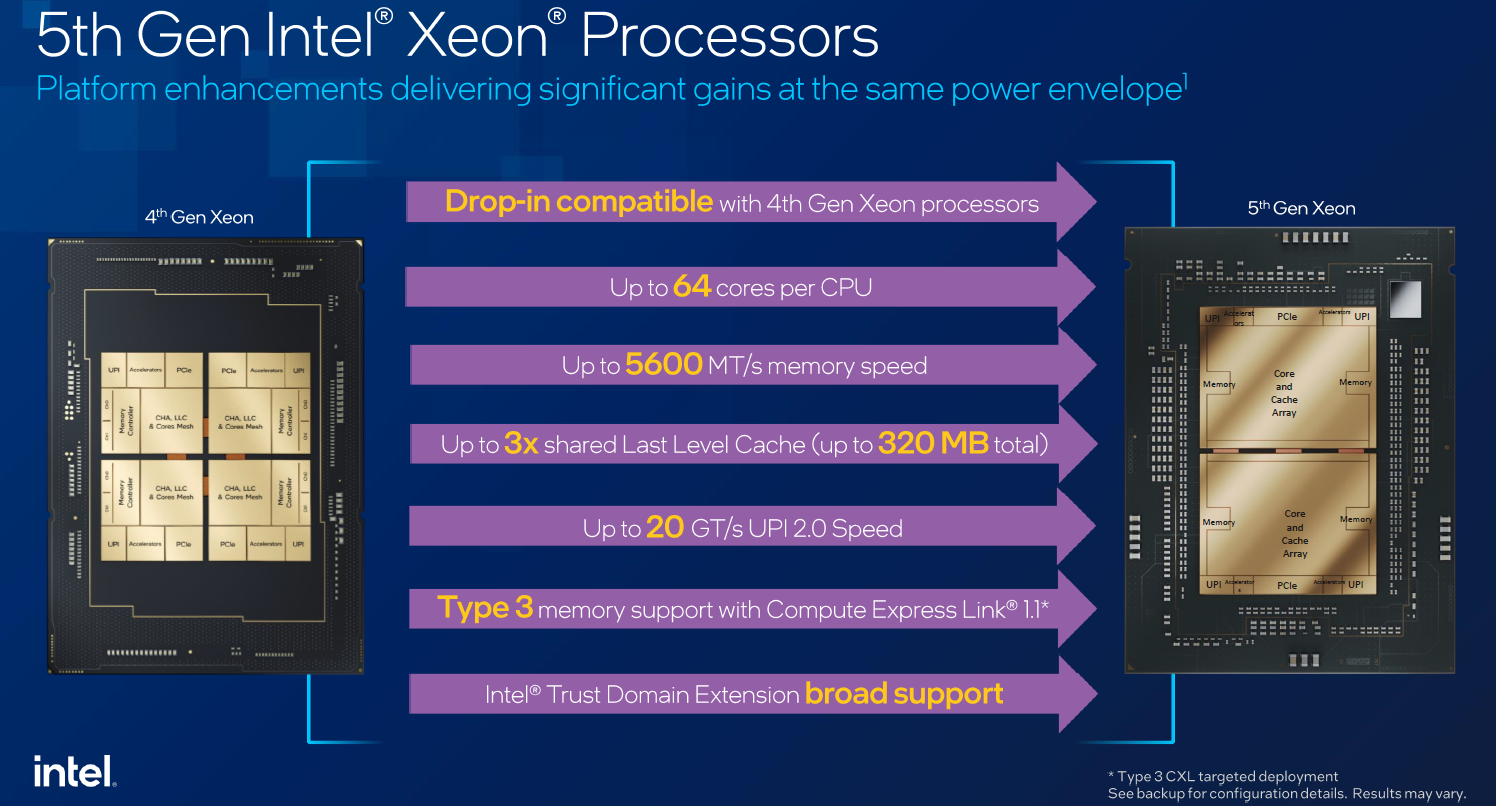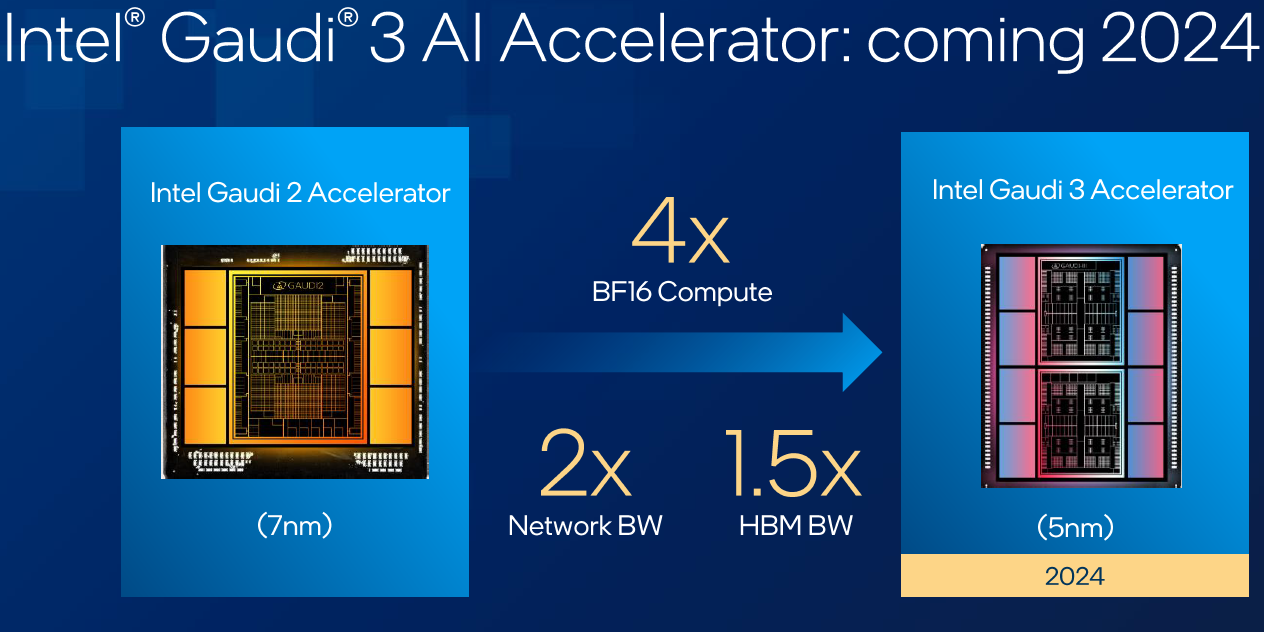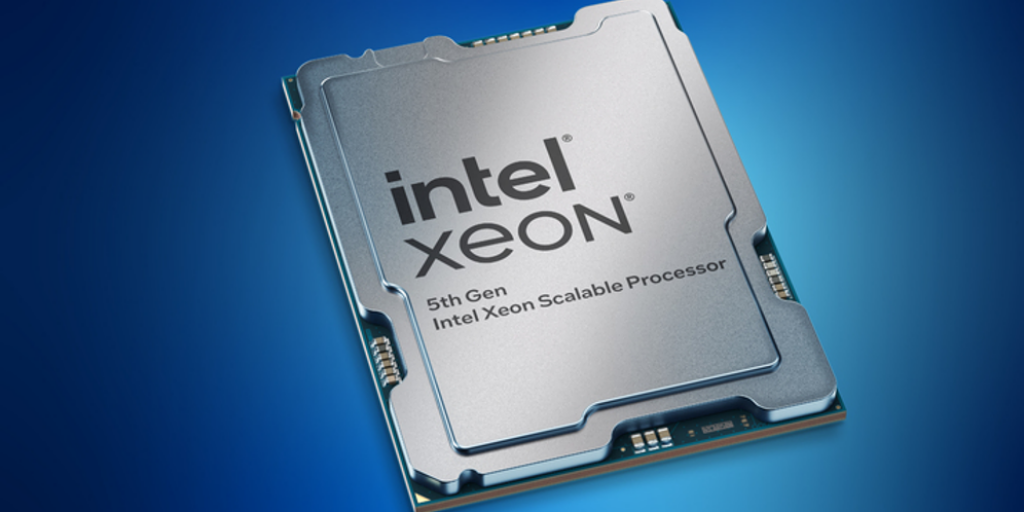Gearing up for what it intends to be a multi-horse race in the exploding AI chip sector, Intel today announced a next-generation Xeon enterprise and data center CPU built with AI inferencing in mind, along with mobile processors targeting “AI PC,” and an advance look from Intel CEO Pat Gelsinger at the Gaudi3 GPU AI accelerator, due next year.
Actually, more than three horses are in the AI chip race. There’s NVIDIA with a big early lead – in fact, NVIDIA has had the field pretty much to itself for more than a year since the launch of ChatGPU lit a fuse under the generative AI market. Then last week, AMD announced availability of its MI300 series of accelerators that take aim at the NVIDIA H100, for which demand outstrips demand to the extent that H100’s are priced on Amazon, when they’re available, at more than $40,000 per chip.
And NVIDIA already is talking about the performance of its DGX AI supercomputer running on the H100’s successor, the H200.
There are also the specialty AI chip companies, such as Cerebras, SambaNova, Groq. And then there’s Google’s Cloud TPU v5p, announced last week.
As for Intel, today it launched the 5th Gen Intel Xeon enterprise and data center CPU family, code named “Emerald Rapids,” built with what the company said are AI acceleration in every core.

In addition, Intel CEO Pat Gelsinger showed for the first time an Intel Gaudi3 AI accelerator, due to arrive next year.

Intel CEO Pat Gelsinger at 5th Gen Xeon launch event
The company also announced launched the Intel Core Ultra mobile processor family for what the company calls “AI PC,” the first built on the Intel 4 process technology and “the first to benefit from the company’s largest architectural shift in 40 years,” Intel said.
“AI innovation is poised to raise the digital economy’s impact up to as much as one-third of global gross domestic product,” Gelsinger said. “Intel is developing the technologies and solutions that empower customers to seamlessly integrate and effectively run AI in all their applications — in the cloud and, increasingly, locally at the PC and edge, where data is generated and used.”
Gelsinger, who was named CEO of Intel nearly three years ago with the goal rejuvenating the company in the face of competitive pressure from with NVIDIA and AMD, discussed Intel’s AI footprint from cloud and enterprise servers to networks, clients and edge environments. He also said Intel will deliver five new process technology nodes in four years.
Regarding the new 5th Gen Intel Xeon processors, Intel said they deliver a 21 percent average increase in general computer performance and enable 36 percent higher average performance per watt. “Customers following a typical five-year refresh cycle and upgrading from even older generations can reduce their TCO by up to 77 percent,” Intel said.
The company said Xeon is the only mainstream data center processor with built-in AI acceleration, enabling the 5th Gen Xeon to deliver up to 42 percent higher inference and fine-tuning on models as large as 20 billion parameters. “Xeon’s built-in AI accelerators, together with optimized software and enhanced telemetry capabilities, enable more manageable and efficient deployments of demanding network and edge workloads for communication service providers, content delivery networks and broad vertical markets, including retail, healthcare and manufacturing,” Intel said.

credit: Intel
During today’s event, IBM announced that 5th Gen Intel Xeon processors achieved up to 2.7x better query throughput on its watsonx.data platform compared to previous-generation Xeon processors during testing.
Google Cloud, which announced it will deploy 5th Gen Xeon next year, noted that Palo Alto Networks experienced a 2x performance boost in its threat detection deep learning models by using built-in acceleration in 4th Gen Xeon through Google Cloud.
Gelsinger also offered an advance view of the Gaudi3 AI accelerator due for release next year built for deep learning and large-scale generative AI models. He said Intel has seen an expansion of the Gaudi pipeline, touting what he said are the chip’s TCO advantages.
“With increasing demand for generative AI solutions, Intel expects to capture a larger portion of the accelerator market in 2024 with its suite of AI accelerators led by Gaudi,” the company said. “With partners and a broad ecosystem, Intel is unlocking new growth opportunities fueled by AI.”




